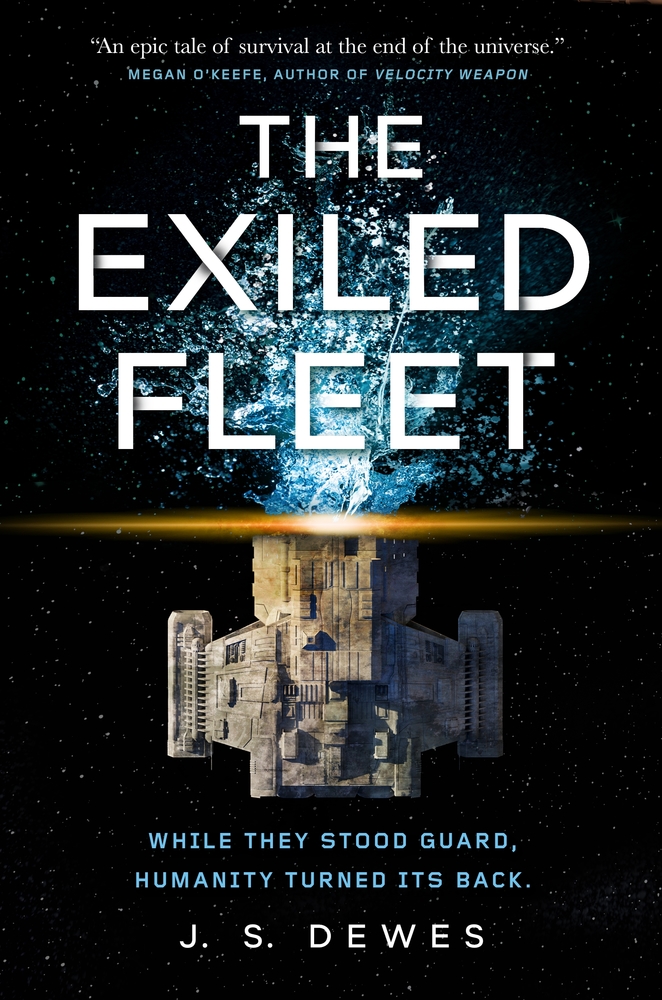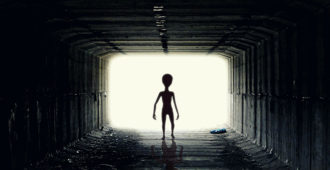 By J. S. Dewes
By J. S. Dewes
In this veritable Golden Age of character-driven science fiction & fantasy, I’ve been noticing a compelling sub-genre of sorts emerging: the adult coming-of-age story.
This is wonderful, and needed, and for me, one of the most relatable things to read about at the moment. We’re drawn toward fiction we see our own struggles reflected in, and I don’t know about you, but as a Millennial experiencing the infamous delayed adulthood due to graduating the literal year of the 2008 economic crash, the older I get, the more I love stories that show us it’s never too late to become the best version of ourselves.
So here I am, defiantly stating that coming-of-age is no longer just for kids & teens! Let’s discuss.
Shall We Define It?
I’m by no means a genre scholar so I’m going to plead the Fifth here and not get too deep into the muck, but there are a few patterns that stuck out to me while brainstorming this topic.
When chatting about it with my husband, his first question was an interesting one: Why do these “adults” even need to come of age to begin with? After taking a closer look at my own novels as well as some of my favorite examples, I noticed these adult protagonists seemed to typically fall into one of two “camps”:
- “Stunted,” in which the character has been delayed in their maturation for whatever reason—be it willfulness, childhood trauma, neglect, etc, and never “grew up” to begin with. This adult may not be faced with the same challenges as their adolescent counterparts (seeking independence, loss of innocence, puberty, etc.), but plenty of other issues abound—be it a struggle to hit common life milestones, social ineptitude, or simply being faced with the fact that they’ve neglected to address a shortcoming for years or even decades (cue existential anxiety over wasted time and shortness of life.)
- “Redo,” where the protagonist already came of age, became a well-adjusted, functional version of themselves and have been living that way just fine for some time. However now, for one reason or another, they’re made to reevaluate this stasis. Maybe their life circumstances changed drastically, maybe a long-held belief is challenged, or maybe they’ve been faced with a truth about themselves they’d previously ignored, and are now forced to address.
But emotional growth exists at the core of any good character-driven narrative, so what distinguishes an adult coming-of-age story? Accepting responsibility seems to be a big one, which at first glance might not seem wildly dissimilar to the expectations of their younger counterparts. However where kids are often learning to take responsibility for themselves and their actions, adults seem to be more often put in positions of taking responsibility for others—family, friends, or as it is so often the case of SFF, entire kingdoms or galaxy-spanning societies.
Backstories seem to play an important role as well—whereas a lack of experience, skill, and/or knowledge are typically the cause of an adolescent protagonist’s faults or missteps, adults are in the unique position of very much knowing better, but willfully ignoring if not simply repressing it entirely. Adults have the unique potential for long, complicated backstories full of emotional hang-ups and dark sins to atone for, and these prior grievances can often become the key focus around which the character arc pivots.
Example Time!
In which I take a closer look at a few of my favorite (more mainstream) coming-of-age stories featuring adult protagonists!
#1 – Tyrion (Game of Thrones)
(Nonspecific character spoilers, whole show.)
As the “black sheep” of one of the most influential families in the Seven Kingdoms, Tyrion is a breeding ground for fascinating character development, and a premier example of the aforementioned “stunted” coming-of-age adult character.
At 32 years old, Tyrion has enjoyed a long life of immense wealth and privilege, while also being treated abysmally and discriminated against by almost every single person in his life. Having long since grown jaded by the way society treats him, he’s fallen into an open-ended pattern of lazy, drunken, womanizing self-destruction only a noble pedigree could finance.
Throughout the events of the series, Tyrion learns many useful life lessons, but one sticks out to me the most—that lineage isn’t everything, and sometimes the people you love aren’t good for you (or in this case, are really really really bad for you.) Learning this is what really allows him to push beyond his “stunted” barricade and start to grow. He begins to enact positive change without resorting to fear mongering and threats like his father, or subterfuge and backstabbery like his siblings. He gains allies he trusts and who trust him in return, takes a measured approach to conflict and is willing to address it head-on while leaving behind most if not all the destructive tendencies that’d previously held him back.
But maybe most importantly, his motivations change. He learns to want a position of power in order to create a better society, actively setting aside his family’s focus on wealth and privilege. His arc is cyclical in that he returns to his position as Hand, but as a wildly different version of the man he was in season one—still naturally intelligent and sharp-witted, but having grown a backbone, a sense of duty and responsibility for others, and an air of authority, earning the respect of his peers and inspiring those around him. In gaining that distance and perspective, Tyrion is able to become the best version of his adult self.
(Please note, I’m choosing to ignore the final seasons’ watered-down apparition of the brilliant, driven, assured, clever man Peter Dinklage made us all fall in love with, and instead assume he stuck the landing and stayed the course he was so clearly on.)
#2 – Dragon Age II
(Vague character & plot spoilers.)
It’s me, so I can’t resist squeezing a video game in here. (Also I dedicated The Exiled Fleet to Anders & Justice, so there’s a lot of Associated Feelings here.)
Fandom withstanding, DAII is a great one to talk about, as it’s an excellent example of the latter “redo” camp, where the protagonist is a useful adult to begin with, but story events radically alter the course of their journey.
Hawke is 24/25 at the very beginning of the game, which takes place over the course of about seven years. As RPGs are wont to do, players are left to make many of the more crucial decisions that ultimately impact character development, however by crafting Hawke as a pre-existing, named character with a single backstory, there’s a bit more structure the writers are able to give for who Hawke is and who they become over the long duration of the game.
After fleeing their small rural town for the city-state of Kirkwall, Hawke’s adult “life status” if you will is altered drastically when they become, in effect, the head of a noble family. Time and time again, Hawke is expected to take responsibility (and consequences) for the actions of their (at times difficult) friends and family, and is repeatedly faced with accepting new and more challenging versions of adulthood than what they’d grown accustomed to in the small farming village they came from.
But a real turning point occurs when Hawke earns the moniker “the Champion of Kirkwall,” and finds themselves idolized by much of the citizenry. This marks a major shift in societal responsibility—one the player cannot reject and which becomes an intrinsic part of the character’s growth. Of course you can roleplay this however you want, but in the end this additional position of power forces Hawke into taking part in some Big Time Responsibility decisions—political, economical, spiritual, and cultural—which not only impact their family and friends, but the trajectory of thousands (arguably millions) of lives across Thedas. If that’s not some serious adult coming-of-age-level responsibility, I don’t know what is.
#3 – Loki
(Minor/medium, mostly setup spoilers.)
Loki Loki Loki Loki. If you haven’t watched this shining example of brilliantly executed television/streaming excellence, go now, I’ll wait.
. . .
Okay, good. Wonderful, right? You’re welcome.
So at first glance, you’re likely to assume Loki is a case of “stunted,” and for good reason. At over a thousand years old, this man-child (god-child?) has never been forced to address his own shortcomings, and still has an impressive amount of growing up to do.
However, early in the story Loki’s forced to (literally) relive his past transgressions, and his worldview is shattered when he’s presented with the notion that his mother’s death may have been his fault. This cracks his previously infallible guise of mischievousness nonchalance, and he’s forced to realize his actions have consequences.
He’s still plenty “stunted,” don’t get me wrong—but this revelation very much plants him in “redo” camp as well. With his core belief system shaken, Loki begins to lose control over the situation (a fate any master manipulator dreads.) This forces him wayyy out of his comfort zone and onto a path he at first resists, rather vehemently. However, with a fragment of belief—and maybe more importantly, trust—from the ever-charming Mobius, Loki begins to undergo a lot of complex emotional shifts. Though he still has plenty of coming-of-age to do, Loki ultimately proves himself not only capable of inspiring trust in others, but learns to trust and believe in himself.
The best part—with only one season under our belts, we’re just getting started with this disaster-adult story, and I have every faith that Loki will become an epic journey of self discovery and a premiere example of adulthood coming-of-age tales.
Smooth Self-Promo Transition
In my debut sci-fi series The Divide (comprised of The Last Watch & The Exiled Fleet), practically every single character is an adult work-in-progress (whether they admit it or not). I hadn’t realized prior to starting this article, but this series is simply packed chock-full of adults who have no idea who they really are.
As soldiers banished to a post on the edge of the universe, the Sentinels find themselves uniquely positioned to embark on transformative life journeys, as they really have nowhere to go but up! Some are being punished for good reason, others less so, but regardless, this unique circumstance has given them all the time and distance to hold their lives, desires, and ambitions up to scrutiny, and reassess how they fit into this new version of their lives.
Conveniently enough, each of the two main point-of-view characters fill one of the aforementioned “camps.” At the beginning of The Last Watch, the Sentinels’ commander, Adequin Rake, falls squarely into the “redo” category. As a venerated war hero, she’s inarguably a very capable, functional adult who came of age just fine, benefitting from the aid of a small but strong handful of positive role models. Her backbone in the military gave her focus, purpose, and drive…until she finds herself languishing at the edge of the universe. The events of the first book really begin to poke holes in that armor, and Rake is forced to realize the person she once was is no longer compatible with the trajectory the universe has put her on. Time for an adult coming-of-age character arc!
Exiled prince Cavalon Mercer on the other hand definitely falls into the “stunted” category. A lack of dependable role models plays a big part in his delayed emotional growth—the only decent ones he had either vanished when he was young, or were emotionally and physically distant. When he’s banished to the Divide, he meets Rake, and through her gains gains that long-overdue, much needed stability, trust, and belief (see Why Can’t We Be (Just) Friends?) and he begins to see a path to get back on track and progress toward “functional adulthood.” But like Loki, he has a long way to go.
A common trope in science fiction and fantasy is to frame humanity as a shortsighted, brash, reckless species. Which, okay, fair—but my optimistic side would like to think this is also what makes us adaptable, and maybe more importantly, resilient. No matter our age—child, teenager, young adult, adult—we’re not only capable of shouldering the changes life throws at us, but we embrace them, accept them, and allow them to strengthen us so we can continually become a better version of ourselves.
I want to hear all about your favorite examples of adulthood coming-of-age fiction in the comments, please and thank you!
J. S. Dewes is the author of The Divide Series. The second book, The Exiled Fleet, is on sale from Tor Books now.
Order The Exiled Fleet Here:












I couldn’t think of any SF/F titles to add to this conversation, but as a SF fan now in her late 70s, I can attest that “coming of age” moments come in nearly every decade for many of us–opportunities to re-evaluate our lives, adjust to change, and select directions in which we want to move. These periodic growth opportunities can bring fulfillment, even happiness, as well as challenges. Good article–I would like to see you revisit it in another decade. Loved both of your books and look forward to more great writing from you!
To my perception, retiring, acknowledging that one is an older adult and learning to live a life no longer defined by career and/or obligations to raise children, is a coming of age. So, or course, is any story of someone coming out as an adult, as any flavor of queer/trans – call it a “re-coming” of age, as one has to become an adult all over again, as a different kind of adult.
Coming of age as an adult in SF&F goes well back into the pre-history of the genre: HG Wells (THE TIME MACHINE, others), Jules Verne (20000 LEAGUES UNDER THE SEA, THE MYSTERIOUS ISLAND, etc.), and others. I could make a case for Golden Age sword-and-sorcery as well (Conan, Kull, John Carter, and more).
Sp… not something necessarily new, but a well-thought-out dissertation. Conga-rats, to your marks!
What about Murderbot? I think in a lot of ways that is an adult coming-of-age story.
The Magicians is 100% about coming of age in adulthood for Quentin. Part of it is what really pushed me away from the series until I realized what was going on. The whole trilogy is Quentin learning to grow up and take responsibility for things and be a real adult rather than just a spoiled child.